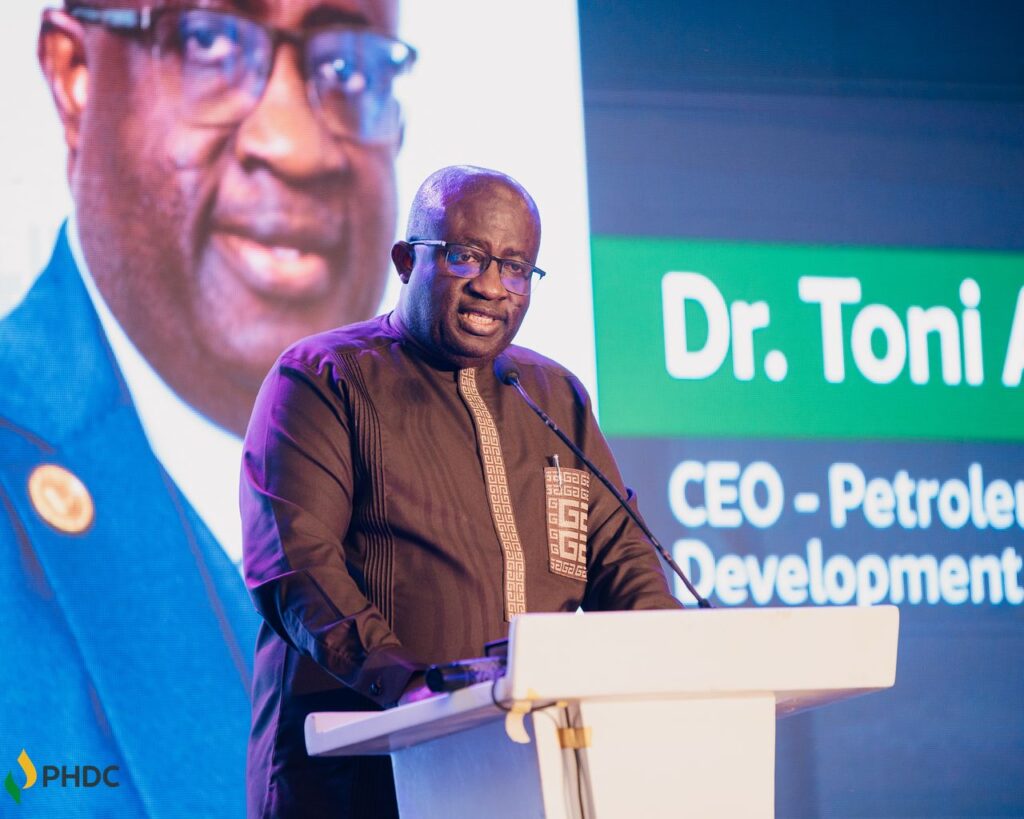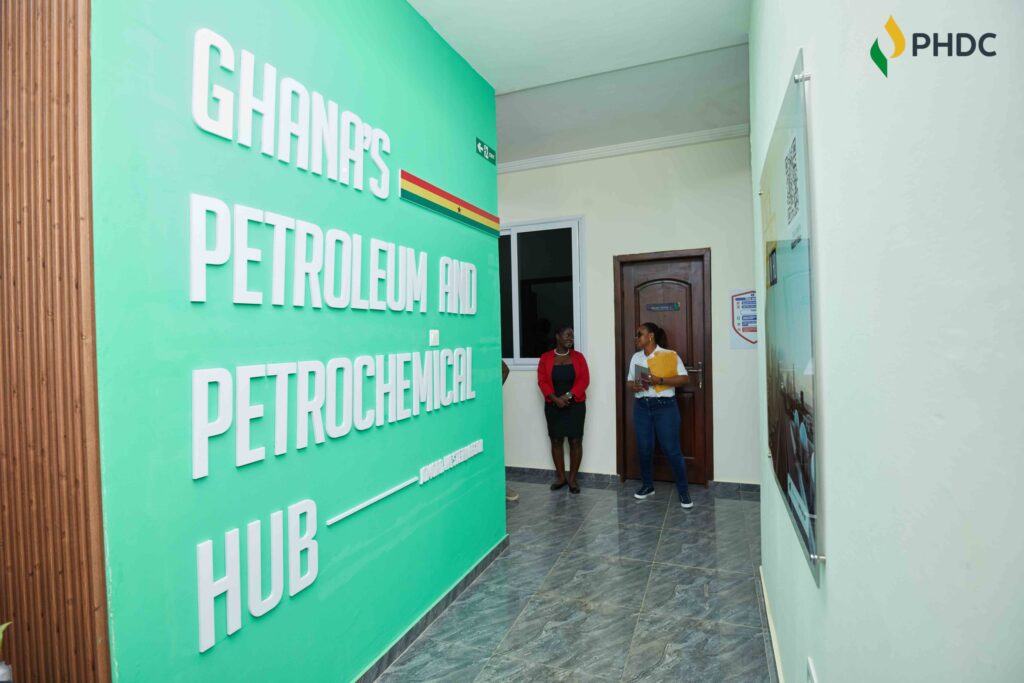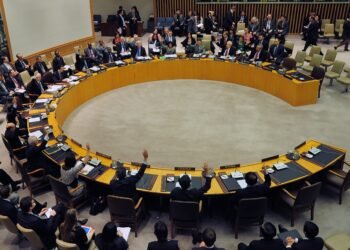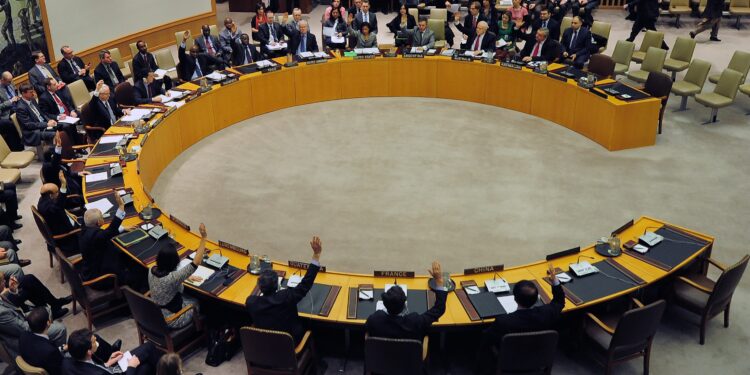The Petroleum Hub Development Corporation (PHDC) has announced plans to cut the registration and permitting process for energy sector players from an average of 300 days to just 30.
Chief Executive Officer of the PHDC, Dr. Toni Aubynn, announced the move, aim at eliminating bureaucratic delays, forms part of a broader strategy to attract foreign and local investments into Ghana’s burgeoning petroleum sector.
“When you want to attract investments into these areas, you don’t want them to go through the old-fashioned bureaucratic inertia that investors face.
“Our studies have shown that to obtain all necessary permits for establishing a petrochemical plant in Ghana can take over 300 days—sometimes even 400. That’s a deterrent.”
Dr. Toni Aubynn, Chief Executive Officer of the PHDC

According to him, PHDC is working in collaboration with agencies such as the Environmental Protection Agency (EPA), the Petroleum Commission, and the National Petroleum Authority (NPA) to reduce these hurdles without compromising the regulatory standards required for operation.
“Our goal is to shorten the permitting time while maintaining the quality and rigor of approvals.
“This is how we make Ghana a competitive destination for energy investment.”
Dr. Toni Aubynn, Chief Executive Officer of the PHDC
The Petroleum Hub project, a key component of Ghana’s industrialization drive, aims to develop a fully integrated petroleum industrial zone in the Western Region. The zone will include refineries, petrochemical plants, storage facilities, and export terminals, transforming Ghana into a leading petroleum hub in West Africa.
So far, several investors have expressed interest in the multi-billion-dollar project, according to PHDC, and a streamlined registration process is expected to further boost investor confidence and participation.
Government Commits to Fast-Tracking Approvals

Minister of Trade, Industry and Agribusiness, Elizabeth Ofosu-Adjare, reaffirmed the government’s commitment to removing bureaucratic bottlenecks that have historically slowed business operations in the country.
“We are committed to fast-tracking approvals for trade-related permits and certificates linked to the petroleum hub.”
Elizabeth Ofosu-Adjare, Minister of Trade, Industry and Agribusiness
Minister Ofosu-Adjare emphasized the role of the Business Regulatory Reforms Unit under her Ministry as a centralized support system for investors.
“At the Ministry, we have created a one-stop shop for business registration and permit acquisition.
“Whether it’s land registration, EPA certification, or other documentation, this unit ensures everything is done swiftly and efficiently.”
Elizabeth Ofosu-Adjare, Minister of Trade, Industry and Agribusiness
This coordinated inter-agency approach signals a policy shift toward greater efficiency, transparency, and investor facilitation. The ultimate objective is to align Ghana’s investment framework with global best practices, particularly as the country competes with other emerging oil economies for foreign direct investment.
Industry watchers have praised the initiative, noting that reducing red tape is essential if Ghana is to fully capitalize on its petroleum potential. The World Bank and other international development partners have long identified bureaucratic inefficiencies as a key constraint on private sector growth in Ghana.

The petroleum hub is expected to play a key role in Ghana’s long-term industrialization strategy, boosting energy security, refining capacity, and petrochemical output.
Reducing regulatory obstacles in the petroleum sector could also have positive ripple effects on job creation, infrastructure development, and exports, positioning Ghana as a major petroleum refining hub in West Africa.
The Petroleum Hub project is expected to attract over $60 billion in investment over the next 15 years and create an estimated 780,000 jobs, both directly and indirectly. According to the PHDC, improving the regulatory environment is the first step toward making this ambitious goal a reality.
As PHDC and government agencies continue refining the new registration framework, investors and industry stakeholders eagerly await the full implementation of the streamlined process.
Ghana’s efforts to remove bureaucratic hurdles come at a time when global petroleum markets are experiencing rapid shifts, making efficient regulatory procedures a competitive advantage in attracting multinational investors.
With the Petroleum Hub poised to reshape Ghana’s energy landscape, officials are optimistic that fast-tracking permits and approvals will catalyze industrial expansion and long-term economic growth.
READ ALSO: Mahama Promises Revamp of Tema Oil Refinery Through PPP




















